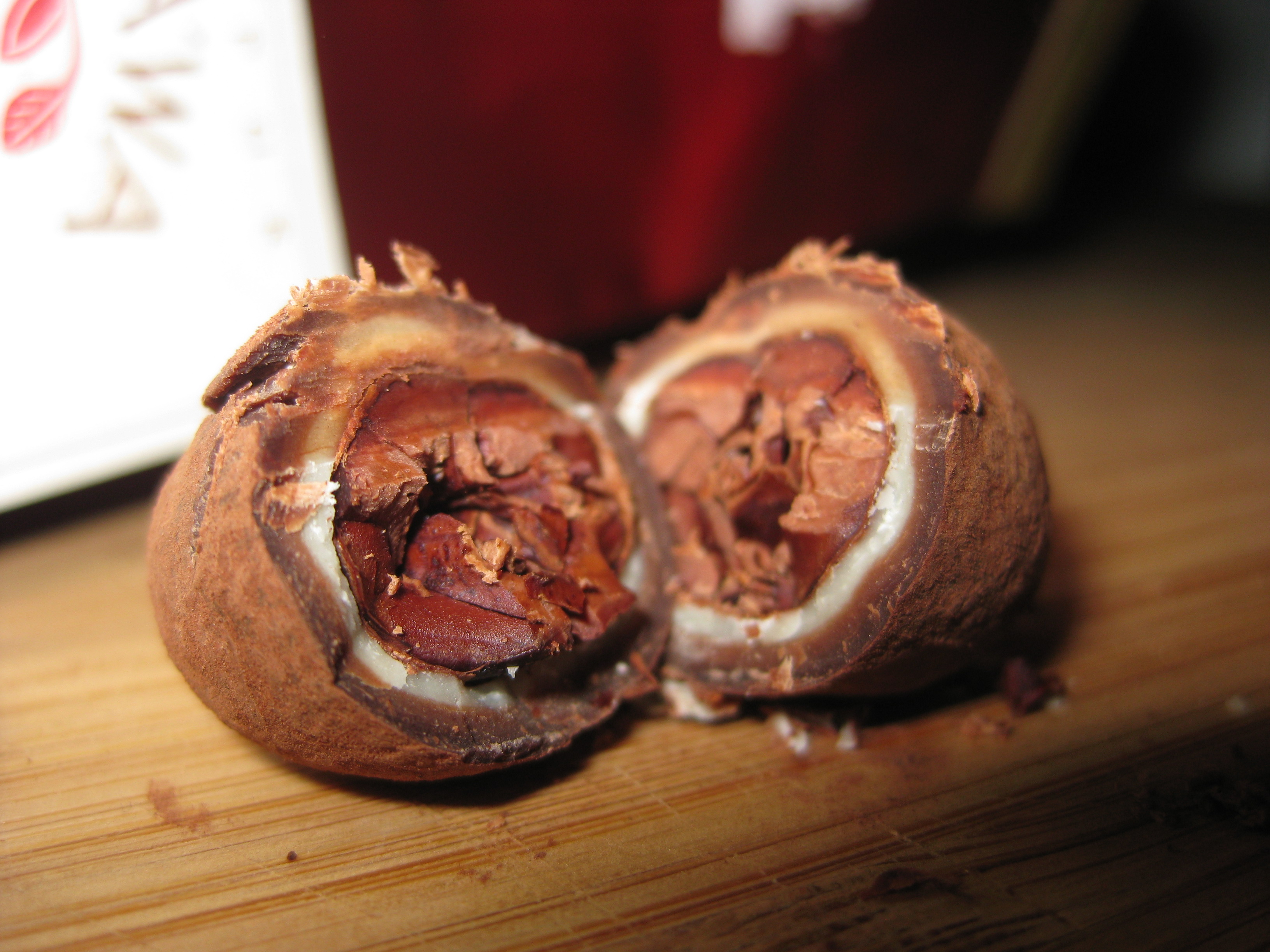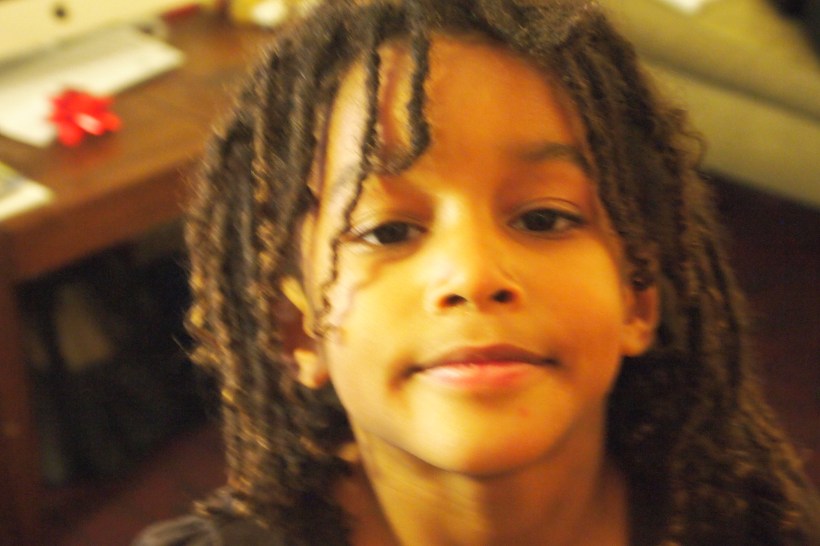Written by CocoaMamas contributor Tracy B.
I have two beautiful Black sons. And, yes, I am biased – but they are also truly beautiful. Like most parents, I love when they receive compliments, and like most parents, I teach them never to talk to strangers. But, because they are handsome – their curly black hair and smooth, deep cocoa skin seems to attract attention wherever we go. I try to take it all in stride; after all, I don’t want my boys to grow accustomed to special treatment. I don’t want them to begin to believe that they are special just because some people think they are attractive. In fact, as much as I lavish attention on them and do my best to help them know that mommy thinks they are the most beautiful and special sons any mother has ever birthed, I’m not all that moved by strangers’ curious commentary – just the opposite, actually.
For instance, there was the time when my husband, sons and my younger brother and I were out having dinner at a neighborhood restaurant and the young ladies in the establishment kept coming to our table to comment on how beautiful my youngest son is. The first couple of times, it was flattering, but when a crowd gathered in the kitchen and a small group formed at our table, it was a little much. By the time we were ready to leave, one of the young ladies mustered up the nerve to ask if she could give him a lollipop and pick him up. My husband, who thinks this attention is cute, obliged before I could object. No harm done until another girl took out her camera phone to take a picture of the other girl holding my baby. Needless to say, dinner was over and we have not been back to that restaurant since.
And just yesterday, while shopping at a home furnishings store, the older woman associate comes to greet us and begins to tell me how handsome my two sons are. I thank her and continue on my way as she kneels down and beckons my youngest to hug her. I stood in shock as he hugged this stranger and listened as she asked him, ‘would you like to come home with me?’ When my child nodded ‘yes,’ I was overcome by so many emotions I could barely contain myself.
I wondered – ‘why does ANYONE think it’s appropriate to walk up to someone else’s child and hold them? WHY would anyone ask a child if he wants to go with them and WHY did my child have to say yes?’ Truly, the woman was harmless, and to her, she was just a lady who loves children. She simply saw two beautiful children and did what she probably always does. And that’s all right – except … it’s really not.
It is one thing to compliment someone and tell them they have a beautiful baby, or whatever other form of flattery a stranger wishes to verbalize during a casual encounter. It is another situation entirely when a complete stranger walks up and caresses another person’s child and asks if that child wants to go home with them.
I know what you’re thinking – you’ve heard this same phrase uttered a million times. Maybe you, too, have watched as your child betrayed you by telling some stranger they want to go with them. And you probably think that I am over-analyzing this harmless situation. And, you might be right if millions of children weren’t lured away from their parents by some seemingly nice stranger who wished them harm, instead of good. Because there is no way to distinguish between good strangers and bad, we teach our children to be safe and not talk to ANY strangers because there’s no way to be sure who’s a good guy and who is not so much.
It is for this reason that I would prefer that strangers, look, but not touch. Thanks a bunch for the compliments, but please, keep it moving. It is quite confusing for a two year-old to understand why mommy is so upset about the hug he just gave to the nice lady. Of course he’d never want to go home with that lady, and the family inside joke about how she’d bring him right back is completely true. But, it’s still inappropriate. Because it goes against what I am teaching him when I tell him not to talk to strangers. Already, his young mind has to try and reconcile our lesson to be polite, which means he should speak when spoken to, yet not to strangers??? It’s no wonder our children are confused. But strangers could make these little life lessons so much easier by just maintaining safe, sensible boundaries.
I’m so proud to have two little ones that are easy on the eyes. Prouder still that they are smart and well-mannered, too. Sometimes, some may say that I am a little over-protective of my boys and they are probably right. But, it’s a strange world out there, and it’s my job as their mother to protect them when I can – even if that means shielding them from seemingly innocent special attention.
 Tracy B. is best known as an expert communicator and brand development professional. With extensive experience as a journalist for prestigious national publications, Tracy honed her skills and natural talent for recognizing newsworthy subject matter, topics and personalities in positions ranging from General Assignment Reporter to Managing Editor of daily newspapers as well as monthly magazines. A mother, wordsmith, world traveler and woman of many talents, Tracy B. is gifted while yet demonstrating her truest desire to leave a positive mark on the planet. Using powerful and transformational words as vehicles of communication, bridging divides and authoring an American fairytale one day at a time, Tracy intends to change the world, endeavoring to, in her own way, make each day more meaningful than the last.
Tracy B. is best known as an expert communicator and brand development professional. With extensive experience as a journalist for prestigious national publications, Tracy honed her skills and natural talent for recognizing newsworthy subject matter, topics and personalities in positions ranging from General Assignment Reporter to Managing Editor of daily newspapers as well as monthly magazines. A mother, wordsmith, world traveler and woman of many talents, Tracy B. is gifted while yet demonstrating her truest desire to leave a positive mark on the planet. Using powerful and transformational words as vehicles of communication, bridging divides and authoring an American fairytale one day at a time, Tracy intends to change the world, endeavoring to, in her own way, make each day more meaningful than the last.










